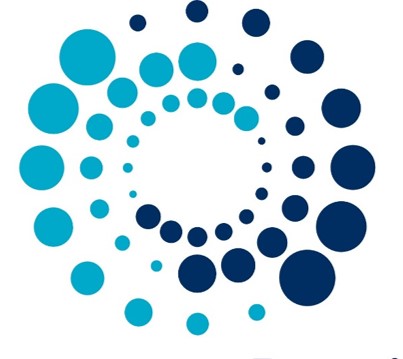By Nicole V. Hamouche
Advisor, Donors Relations
Crowdfunding came in the US, as a response to the financial crisis and was then exported to Europe. In the Middle East, the Arab Spring, which started in 2010, facilitated by the digital media boom have spurred a mindset that encourages individual initiative. Uprisings and demands for reform have been primarily led by middle class youth suffering from inequitable economic growth patterns and who have been taking a proactive role in advancing their future. New media enabled them assert their identity as individuals as well as the emergence of a certain type of independence.
As governments and large companies fail to generate the number of jobs required for them, many young people are turning to starting their own businesses; with a difficult access to capital. Major banks and financial institutions remain biased in favor of larger and less risky constituencies of the market. Only 8% of bank credits in the region address SMEs and only one out of five companies can get a bank loan – not to speak of equity financing extremely scarce for early stage initiatives – whereby SMEs account for 60% of jobs and represent the hires tank for the future (1). Hence, crowdfunding very naturally appeared in this landscape to fill the financing gap and support a buoyant and creative entrepreneurial scene. It is supported by a highly internet connected and tech savvy generation: in Egypt for instance, almost 40 million people regularly surf the web; more than 200,000 qualified and multilingual professionals work in the ICT sector and the government has set the target of doubling the share of this sector in the national economy to 8.5% by 2020, creating 250,000 new jobs in the process. In Iran, there are 30 million internet users for a population of 80 million inhabitants.
In this environment, several crowdfunding platforms saw the light in the last years, including in Iran – despite the control of the web by the authorities – some of which have already disappeared; the most prominent player being Zoomaal, a reward based – most platforms in the region are – regional platform that covers 22 countries. Zomaal has financed since its start two years ago about 100 projects for USD 1.3 million, which have created 500 jobs. Only one equity based platform, Eureecaa is operating in the region – much less investments but bigger tickets – equity investment being more complex as it entails the issuance of securities, hence serious regulation to protect both investors and entrepreneurs given the “virtual” dimension of the process. It is to be noted that Lebanon has been a pioneer in crowdfunding regulation, under the impulse of Dr Nasser Saidi, former vice Governor of Central Bank and Deputy Chairman of Eureecaa since 2012. However, the crowdfunding industry is still at its early days in the Middle East and many countries are still lacking clear regulations, noting that it was only a couple of days ago, two years after it proposed its original rules, that the SEC securities regulators in the US, approved new crowdfunding rules, allowing start-up companies to raise money from mom-and-pop investors over the internet. Along regulatory issues, online payment is also one of the obstacles that crowdfunding can be faced to in the MENA region. The latter has been addressed by Zoomaal for instance by providing payment solutions adapted to each market through prepaid cards, partnerships with money transferring agencies, etc.
In a crowdfunding market estimated at USD 5.6 billion in the MENA region (3) , driven by the strong penetration of social media, it is worthwhile for governments to put efforts in facilitating the business environment for the industry; especially as it is supporting sectors where both public and private funding is scarce and where demand is huge: art and culture, innovation and creativity, community and civil society projects (education, health, refugees, etc), social entrepreneurship, women empowerment… Zoomaal alone receives about 1000 applications monthly; a very small percentage of which only ends up going live on the platform, given eligibility and selection criteria. Hence, crowdfunding can be viewed by public authorities and by institutional donors as a means to empower specific economic and social sectors all the while a risk selection tool; to financial investors as well.
Most of investors in the Middle East today are culturally cautious and try to avoid ventures with an uncertain return on investment. Crowdfunding does give them some comfort from this standpoint: validation by the crowd ensures, to some extent, the viability of the project and creates a community of early adopters who will accompany the growth of the initiative. Also, the marketing buzz embedded in the crowdfunding campaign is a substantial competitive advantage with respect to traditional funding as well as the rapidity of the process – a campaign lasts 2 months on average, much faster than shopping around for a classical fund raising. This is why venture capitalists are now looking at successfully crowdfunded initiatives to fuel their pipeline and partnerships are being established between both players. Crowdfunding does not substitute to VCs and angel investors; rather it constitutes a layer in the financing scheme of the life of a company/an initiative. It is not by chance that major corporate investors, VCs and private equity players are leaning on Kikcstarter and the likes in the West.
In the East crowdfunding not only holds a financial mission but also an important social capacity as it empowers and enables the youth. This mission is particularly dear to Zoomaal, the platform based in Lebanon, which not only provides an infrastructure for fund raising but also engages in capacity building activities and partnerships with major accelerators in the region such as FlatsixLab in Egypt and Oasis 500 in Jordan and corporates such as Intel and Zain bringing exposure and opening doors to candidates, which are in need for this kind of support as much as for financing, if not more. The uniqueness of Zoomaal’s business model also stems from the matched funding challenges it launches regularly in partnership with international donors such as the British Council and Hivos. Challenges are competitions on a pre-defined theme: education, social innovation, women at the front line,etc whereby each dollar pledged by the crowd is matched by a dollar from the institutional donor, generating a significant multiplicatory effect: between 2x to 4x the initial funding on average; and it can go much higher; the Women pioneers’ challenge having reached a 9x multiple: a 20 000 USD initial budget ended up funding USD 180 000 of projects. One of the cornerstones of Zoomaal’s model is the interest it draws from the Diaspora: 50% of the contributions on the platform come from the Arab Diaspora, who is keen on giving back to the country of origin. Even the Central Bank in Lebanon in capitalizing on this fundamental trend is an initiative to be announced in 2016.
Crowdfunding can create novel partnership opportunities for institutional investors and governments, allowing them to achieve broader impact with existing funds. They can tap crowdfunding technology to support coinvestments in entrepreneurs and SMEs that have demonstrated traction in their own communities, and then measure their outcomes over time. Major players such as the European Commission and the World Bank have started to look at the model in the scope of their involvement in developing countries. In Lebanon UNDP already uses Zoomaal’s platform to raise funds for its rural development projects. For a region faced with the challenge of creating almost as many jobs as currently exist and of giving hope and dignity to its youth, crowdfunding is one potential inclusive solution that is worthy of serious exploration; as it could also very much fit with the sharia compliant finance market, which is significantly sizeable. The snow ball effect of such a model is bound to inspire youth and motivate them to endeavour; stay in their homelands and contribute to their own future. Initiative is freedom, badly needed in the region and crowdfunding allows initiative.
(1) Source: World Bank
(2) (foot note) Private companies were previously allowed to solicit only accredited investors – those with a net worth of at least $1 million, excluding the value of their homes, or annual income of more than $200,000.
(3) Source : Massolution

